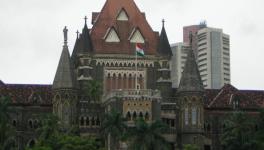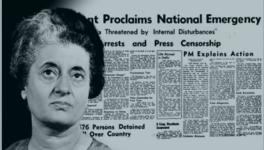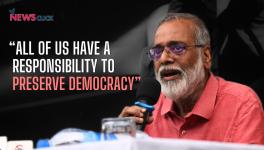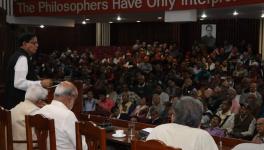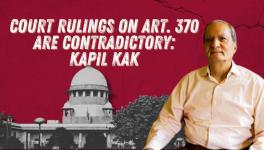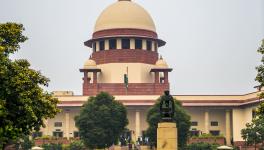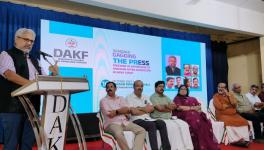History will be Judge of all Government Decisions
My decision to quit the civil services is an emotional step but not impulsive one. I feel that an emotional decision can be well-thought-out whereas acting on impulse conveys not having thought something through. My decision is emotional in the sense that I feel very strongly about getting my freedom of expression back. There were issues I wanted to raise and express; which I felt are very important, but I was not able to. To regain my freedom of expression (FoE), it was very important that I resign.
People ask me if I resigned over the Kashmir issue. First, if I do not have FoE, how can I raise this issue on behalf of others? Yes, with my FoE the first major issue I would raise is that we have clamped down on a section of our own population.
One can keep calling it [the clampdown in Kashmir] a bitter pill. When you give a child a bitter pill, your decision may be right or wrong. Maybe you administer it because you know better than the child. But after you have administered a bitter pill, you don’t take away the child’s right to cry or get upset about it. That is my whole position.
I am not saying that the population is like a child—my view is very different—I am only saying this with respect to the people who are arguing that this [clampdown] is a bitter pill. To them I say, fine, the government is elected by us and we trust them to make decisions. Fine, I will accept that the government has done what it has for their [Kashmiri’s] own good. But after you have taken the decision, you can’t take away the right of people to react to it.
There was a build-up and anticipation for a few days before the decision [to revoke Jammu and Kashmir’s special status] was taken. On the intervening night of 5th and 6th August, the leaders [in Kashmir] were detained. I had a rather detached approach to the decision at the time. In other contexts, I have seen the local manifestation of what happens when a population is shut down. There does not have to be an explicit or open stifling of FoE. A subtle kind of suppression takes place. For example many times we wonder: ‘What will the government do?’ and end up not saying what we want to say. It is like having a relative to whom you don’t say what you want because you don’t want them to feel bad. You end up sharing a fake relationship with them and maybe, at some point, something is triggered and what [we had suppressed] comes out in the open.
I saw the local manifestation of [subtle suppression] in Dadra and Nagar Haveli. Around 500 daily-wage workers lost their jobs in government. I had expected at least some voices to speak out against this. When such voices did start coming out, suddenly, the administration contained them. My view is that it is not necessary that whatever the administration does, from panchayats to the Centre, is always correct. If you don’t let the other side raise its voice or even react to your decisions then we cannot properly call ourselves a democracy. A government takes decisions but history will judge the effect of these steps.
People repeatedly ask me why I quit the IAS. They ask this question because systems are not in place in our country. We feel bad when an officer leaves, especially those we perceive as good or able. We feel bad because ours is a supply-driven system: We are dependant on officers. Ours is not a demand-driven system where it would not matter who is coming or going. The system should deliver at least 80% of what it is supposed to even if the rest is up to an individual officer’s priorities or abilities.
I did not quit in anger or protest. I feel it is my responsibility to express my views in favour of our own citizens. That propelled me to resign. When my sense of responsibility started conflicting with the Code of Conduct rules of the Civil Services which I have to follow as an officer is when I quit. My sense of responsibility pushed me to express my views but the Conduct rules say that I am not allowed to criticise government policy. Therefore my first aim is to regain my FoE. After that, for anybody who feels very strongly about their responsibility, it becomes very difficult to not pursue it.
Nation-building, as I understand it, takes persuasion. And in country like ours it also takes a bit of coercion, but more importantly, it takes a lot of patience. Many of us want to “solve issues”. This is why many people want engineers [like me] to join the services. They believe that engineers know how to “solve” things—and are not capable of anything else. Engineering problems may have only one solution, but that kind of straight-jacketed thinking does not work when dealing with people. It is humanly impossible to take into account all possible outcomes from a decision and plan for all of them. If we plan for nine possibilities, what if the tenth manifests? Then how do we respond to it?
It is important to engage, to understand and remember not to ignore those whose ideology we do not like. But if there are disagreements, then the merits of the issue should be discussed, not name-calling or ad hominem attacks. We must keep in mind that the issue is important, not the person—the what is important, not the who or why.
I also get asked about what would have been enough FoE: Would a Facebook comment have done the work of expressing what I wanted to? A lot of us [people in the services] want to serve the country in the best way we can. Most of us are convinced that the best way of doing so is while being in service. Of course, in the meanwhile, one may feel a bit suffocated by not having FoE. People do write a Facebook post or something similar in such situations and this in itself is a very courageous thing.
Yet, there are two aspects to the work of a bureaucrat. One is to do the right thing and the other is to stand up against what is wrong. A lot of us focus on doing the right thing but don’t sufficiently stand up against the wrong. The latter does not necessarily mean standing up against corruption or illegal acts—it could be a morally incorrect thing which is [also] illegal.
That said, it is not just the bureaucracy but the media, civil society, the judiciary, Opposition parties and citizens, of course, who have the responsibility. Bureaucrats are part of the government and it is sort of their moral responsibility to defend the government’s decisions. But the media can criticise the government’s decision without having to worry about whether it is in national interest or government’s interest. If just this much is done by the institutions that are supposed to expresses themselves, the space for dissent will have been reclaimed.
People ask me if I am afraid, but why should I be. Maybe, I have more belief in my democracy and my system than those who ask me this or those who are afraid. This is our government, we have elected it, we might have a difference of opinion and we need to stand by it but after that the right to react is ours. We give a bitter pill but at least let the child cry.
Kannan Gopinath is an IAS officer who resigned earlier this month after the government clamped down on dissent in Jammu and Kashmir, after its special status was revoked.
(As told to Pragya Singh.)
Get the latest reports & analysis with people's perspective on Protests, movements & deep analytical videos, discussions of the current affairs in your Telegram app. Subscribe to NewsClick's Telegram channel & get Real-Time updates on stories, as they get published on our website.









